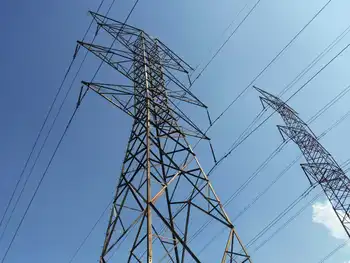NS Power prepares for rate hike
By CBC.ca
Electrical Testing & Commissioning of Power Systems
Our customized live online or in‑person group training can be delivered to your staff at your location.

- Live Online
- 12 hours Instructor-led
- Group Training Available
The utility is projecting electricity costs to increase 20 per cent by 2015. That includes an average residential rate increase of nine per cent next year, four per cent in 2013, two per cent in 2014 and five per cent in 2015.
Nova Scotia Power has not yet filed its application with the Nova Scotia Utility and Review Board, company representatives said at a briefing for stakeholders and members of the media.
Rene Gallant, the general manager of regulatory affairs with the utility, said the main reason ratepayers may have to pay more next year is to cover renewable projects that are currently on the grid but are not yet paid for.
"We've invested about $1 billion in the last three years in Nova Scotia. We've been building wind farms, we've been investing in our plants and our equipment, putting equipment on the plants to keep our emissions down and meet the province's standards," Gallant told reporters after the news conference.
He added that the $1 billion has not yet been included in the utility's rates.
"At some point, like your Visa card, you have to start paying back those amounts that you've borrowed. So that's a key driver of why we're thinking we'll need to change rates," said Gallant.
Nova Scotia Power said it will need $90 million from ratepayers next year — $4.9 million of which is to increase dividends to its shareholders.
Although the utility is coming off a year of record profits, Gallant said the company needs to give shareholders more money to stay competitive.
"They don't have to invest in our company, they can invest in any number of utilities and if the rate of return is not competitive with those other utilities, they'll go somewhere else," he said.
Don Regan, who represents the Municipal Electric Utilities Co-operative, said developments like the proposed Lower Churchill hydroelectric megaproject will also mean higher rates in the future.
"There are capital plans the company has, such as the undersea cable from Newfoundland, which aren't in the numbers we saw today or in the years we saw today," Regan told CBC News.
"We're appreciative of the company laying out the future as they have here today — something they haven't done much in the past — and we're not surprised by what they've brought forward, but it does give us the opportunity to work together to mitigate these effects."
Gallant said the utility hopes there will be rate stability in several years when it completes a transition to renewable energy, an issue that Nova Scotia's NDP government has been pressing since it came to power.
Last year, the provincial government announced plans for 40 per cent of all electricity to come from renewable sources by 2020. It had already set a goal of 25 per cent by 2015.
Premier Darrell Dexter said Nova Scotia Power's plans to ask for a rate increase has not shaken his belief in the renewable energy plan.
"We're obviously very concerned with anything that affects people in the province. It is a difficult time for people trying to make ends meet," Dexter said.
"Obviously this is disappointing. We'll be at the hearing, of course, to ask questions and see that they are able to justify the increased costs."











